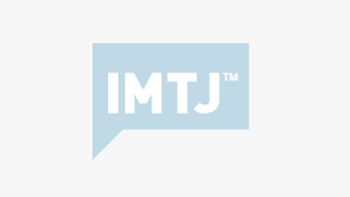MASholidays, the travel arm of Malaysia Airlines is expanding its health screening packages currently offered to customers through an existing collaboration with HSC Medical Center, a diagnostic centre in Ampang, Malaysia. Under the new arrangement, HSC will offer executive health screening, heart screening, heart and stroke screening, and heart, stroke and cancer screening options to MASholidays at attractive rates.
MASholidays, the travel arm of Malaysia Airlines is expanding its health screening packages currently offered to customers through an existing collaboration with HSC Medical Center, a diagnostic centre in Ampang, Malaysia.
Under the new arrangement, HSC will offer executive health screening, heart screening, heart and stroke screening, and heart, stroke and cancer screening options to MASholidays at attractive rates. MASholidays will then incorporate these screening programmes into its all-inclusive travel packages and promote them to customers who wish to experience Malaysia’s affordable world-class medical facilities.
HSC Medical Center (HSC) is one of the few centres in the world to have designed and offered comprehensive health screening packages for heart diseases, stroke, and cancer, to detect some of today’s life threatening diseases. HSC also provides advanced medical and cardiac therapeutic services, such as coronary angiogram, balloon angioplasty, and stent implantation.
Through these packages, Individuals will be given a choice of economy or business class return travel exclusively on Malaysia Airlines, 3 nights’ accommodation in a 3 to 5-star hotel, daily breakfast and a roundtrip private transfer from the hotel to HSC for the free health-screening. This package includes a preventive care programme.
Dr. Amin Khany of Malaysia Airlines explains, “MASholidays introduced a health screening package in 2005 with HSC Medical Center as an expansion of the Malaysia stopover programme. Healthcare is now more affordable in Asian countries and Malaysia boasts a high number of specialists with extensive international qualifications. This is the national carrier’s contribution to make Malaysia the preferred medical tourism destination”. Dr. Lim Yin Chow of HSC Medical Center adds, “In spite of being one of the established healthcare industry players in the country, we realise that in order to grow, we have to take advantage of the booming international medical tourism market. This partnership between a Malaysian private medical centre and an airline marks a significant development in HSC’s effort to reach out to medical tourists from around the globe, in line with the government’s effort to develop Malaysia into a global medical tourism hub. Since moving to our own building in early this year, we have put in place various mechanisms to cater to international patients. HSC is just 1 hour away from Kuala Lumpur International Airport (KLIA) via a direct highway. This makes us a fitting and convenient medical destination for foreign patients travelling with Malaysia Airlines.”
The deal is in line with the Ministry of Health’s aim in becoming the leader of healthcare services destination in the region. The Malaysia medical tourism industry’s revenue is anticipated to grow by 16% a year between 2011 and 2014.
TMC Life Sciences is targeting medical tourism to be a major contributor its revenue in the next three years as it seeks to become profitable. The group is targeting medical tourists and wants them to account for 30% of its patients within the next three years. TMC Life Sciences is offering a range of services from diagnosis to cardiac and orthopedic surgery. The group expects the 30% to contribute 40% of TMC’s revenue. At the moment, less than 5% of TMC’s patients are foreigners, and it has been making losses over the last 2 years.
The target markets are Indonesia, Bangladesh, and Indo-China, mainly using TMC’s flagship hospital, Tropicana Medical Centre in Kota Damansara. The hospital is 15 minutes away from the Sultan Abdul Aziz Shah Airport in Subang. Tropicana Medical Centre has 120 beds and is adding another 30. It has an international patient centre (IPC) with staff fluent in English, Chinese, Tamil and Malat, while interpreters for other languages can be pre-arranged.








 ©2024 All rights reserved LaingBuisson
©2024 All rights reserved LaingBuisson 


